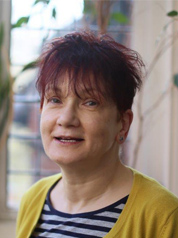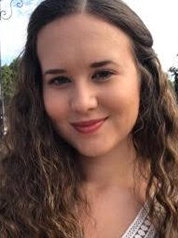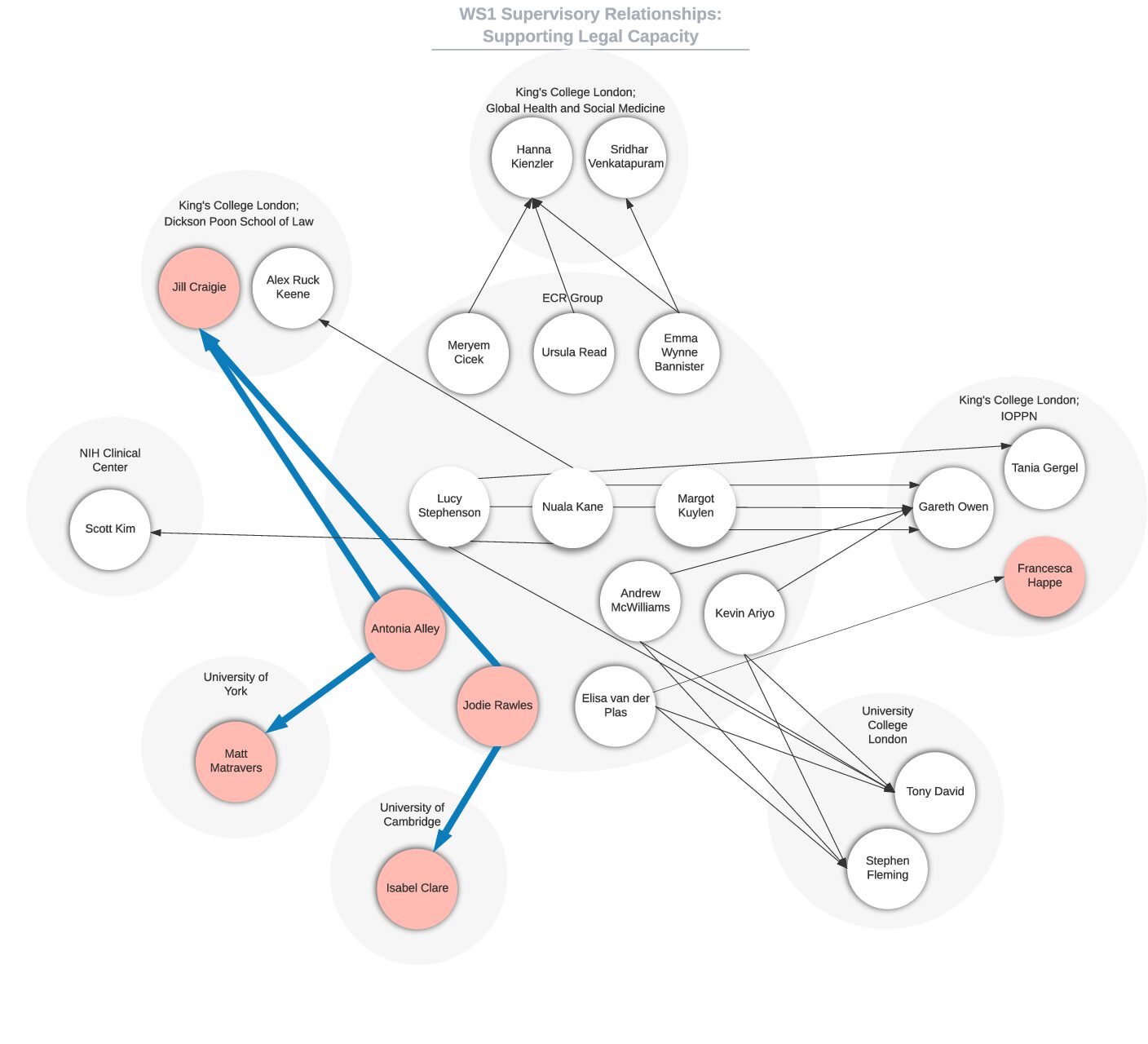Enabling Legal Capacity Through Decision-Making Support
Workstream 1
Led by Dr Jillian Craigie, workstream 1 will critically examine supported decision-making as one answer to resolving tensions between respecting and protecting people with mental disabilities in the context of significant life decisions.
Background
In the context of significant life decisions—about healthcare, living arrangements, personal relationships—supported decision making is increasingly seen as a way of resolving tensions between respecting and protecting a person with a mental disability.
Provisions for support are already found in domestic legislation in England & Wales, for example, in the Mental Capacity Act 2005 (s. 1 (3)) and the Care Act 2014 (s. 67). However, it is unclear to what extent these have been implemented.
International law goes further, with the United Nations Committee on the Rights of Persons with Disabilities setting out that:
“States parties must refrain from denying persons with disabilities their legal capacity and must, rather, provide persons with disabilities access to the support necessary to enable them to make decisions that have legal effect.” (General Comment No.1, 2014, para.16)
Significant questions raised by a shift to supported decision making, form the focus of the work stream.
Approach
Questions about practice:
- How are key concepts such as ‘autonomy’ and ‘respect’ understood and put into practice, particularly when a decision may risk harm to the person or others?
- Do different kinds of decision require different kinds of support?
- What constitutes undue influence when significant support might be involved?
Questions about new legal boundaries:
- When does a person require support?
- Are there limit points beyond which we exhaust the possibility of supporting legal capacity?
- Is there a boundary beyond which we can no longer sensibly say that the person is making a decision?
- Could we nonetheless say that the person could be supported to have a ‘power’ over the decision?
Outcomes
Our research addressing these questions is interdisciplinary and includes:
- Investigating the moral justification behind the shift to universal legal capacity and support in the Convention on the Rights of Persons with Disabilities, and its application in different legal contexts.
- Analysing assumptions about agency within criminal law concerning capacity to sexual consent on the part of adults with mental disabilities.
- Exploring the possibility of articulating a non-cognitive basis for grounding legal personhood; this work will draw on a pilot qualitative study in Canada involving parents with adult children with profound intellectual disabilities.
- Empirical studies of the way in which, in practice, adults with intellectual disabilities are supported in making particular legally-significant decisions.
- Analysing the idea that it is not possible to separate the autism from the person, and what implications follow for decision making support and consent.
- Using relational autonomy theories to investigate how undue influence should be understood in the context of supported decision making.
Publications
Craigie, J. (2021)
Conceptualising ‘Undue Influence’ in Decision-Making Support for People with Mental Disabilities
Craigie, J., Bach, M., Gurbai, S., Kanter, A., Kim, S. Y., Lewis, O., & Morgan, G. (2019)
Legal capacity, mental capacity and supported decision-making: Report from a panel event
International journal of law and psychiatry, 62, 160-168.
Skowron, P. (2019)
Giving substance to ‘the best interpretation of will and preferences’.
International Journal of law and Psychiatry, 62, 125-134.
Recent activity
Supporting the contraceptive decision-making of adults with intellectual disabilities - Jodie Rawles
Conference on the topic of contraception decision-making and people with intellectual disabilities at the Cambridge...
Undue influence in the context of decision-making support - Jillian Craigie
Conference presentation, Autonomy in a Healthcare Context, Oslo Met, Oslo, Norway, 12 December 2023
Mental Health and Justice colloquium 2019
Members of the Mental Health and Justice research project gathered across the workstreams, alongside participants of...
Workstream members

Jillian Craigie
Principal investigator
Senior lecturer in medical ethics, Centre for Medical Ethics and Law, Dickson Poon School of Law, KCL. Jill has expertise in mental health ethics, neuroethics and philosophical psychology. She will lead on workstream 1 and contribute widely across the research network.

Michael Bach
Core member
Managing Director, Institute for Research and Development on Inclusion and Society, Ontario, Canada. Michael has almost 30 years of research and policy experience in the area of legal capacity and supports for people with intellectual disabilities. He will be involved in both the theoretical and empirical research within work stream 1 and will be part of its advisory group.

Isabel Clare
Core member
Consultant clinical psychologist at the Cambridge Intellectual Disabilities Group and affiliated lecturer, Department of Psychiatry, University of Cambridge. Isabel has expertise in intellectual disabilities and autism, mixed methods research and mental health law. She will be the primary supervisor for the work stream 1 doctoral research and as well as being part of the theoretical work and the advisory group.

Francesca Happé
Collaborator
Professor of cognitive neuroscience, Institute of Psychiatry, Psychology and Neuroscience, King’s College London. Francesca has expertise in Autism and Asperger’s syndrome, social cognition and experimental neuroscience. She will contribute to the theoretical work and will be part of the advisory group within work stream 1.

Matt Matravers
Core member
Professor of law, University of York. Matravers has expertise in philosophy of law and political philosophy. He will be particularly involved in the theoretical work of Work Stream 1, including postdoctoral supervision, and will be part of an advisory group for that work stream.

Jodie Rawles
Core member
Jodie Rawles joins work stream 1 as a doctoral student in the Department of Psychiatry at the University of Cambridge. She is supervised by Dr Isabel Clare and Dr Jillian Craigie and her project will investigate decision-making support enabling legal capacity for people with intellectual disability, using theoretical and qualitative research methods.

